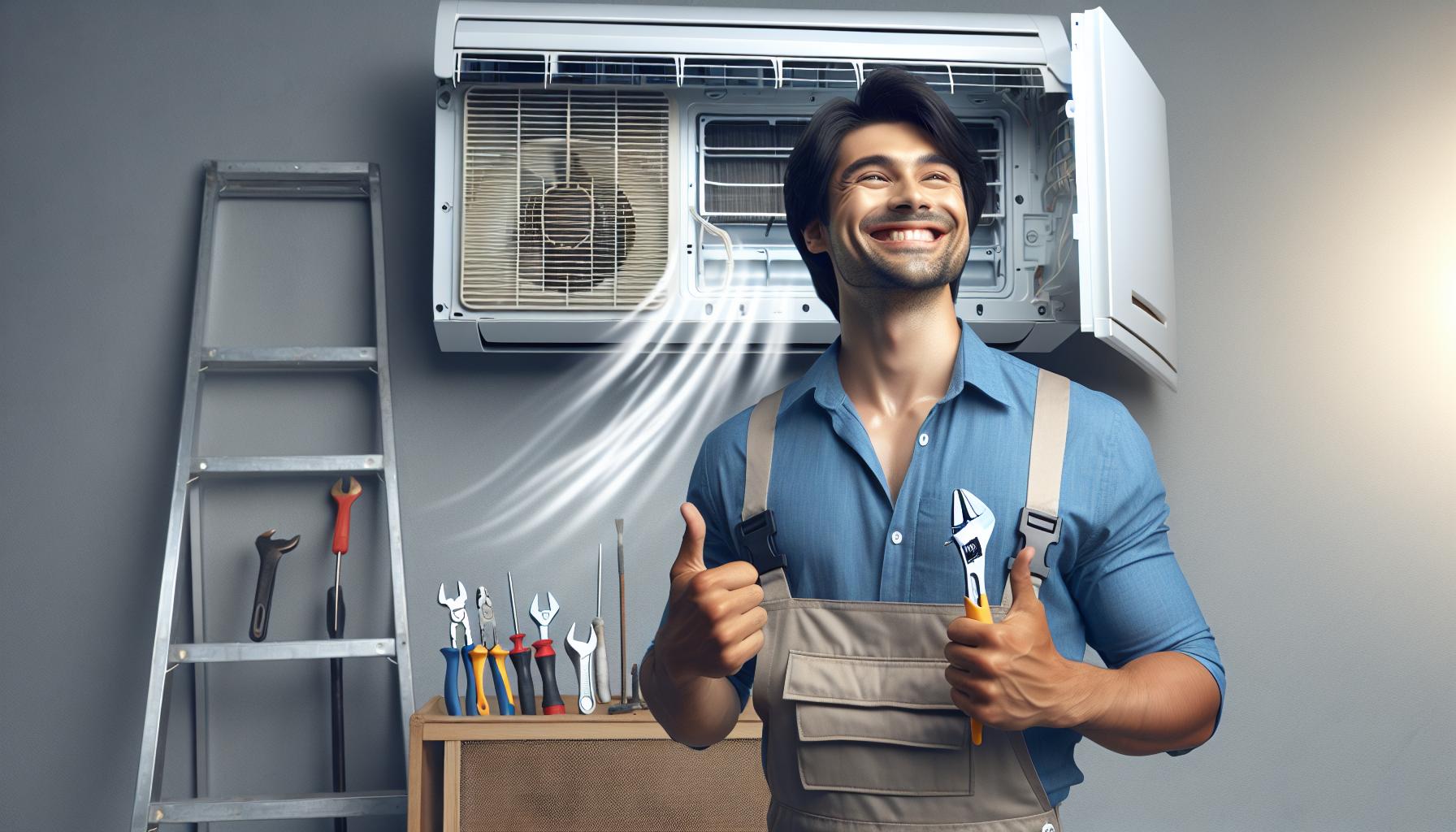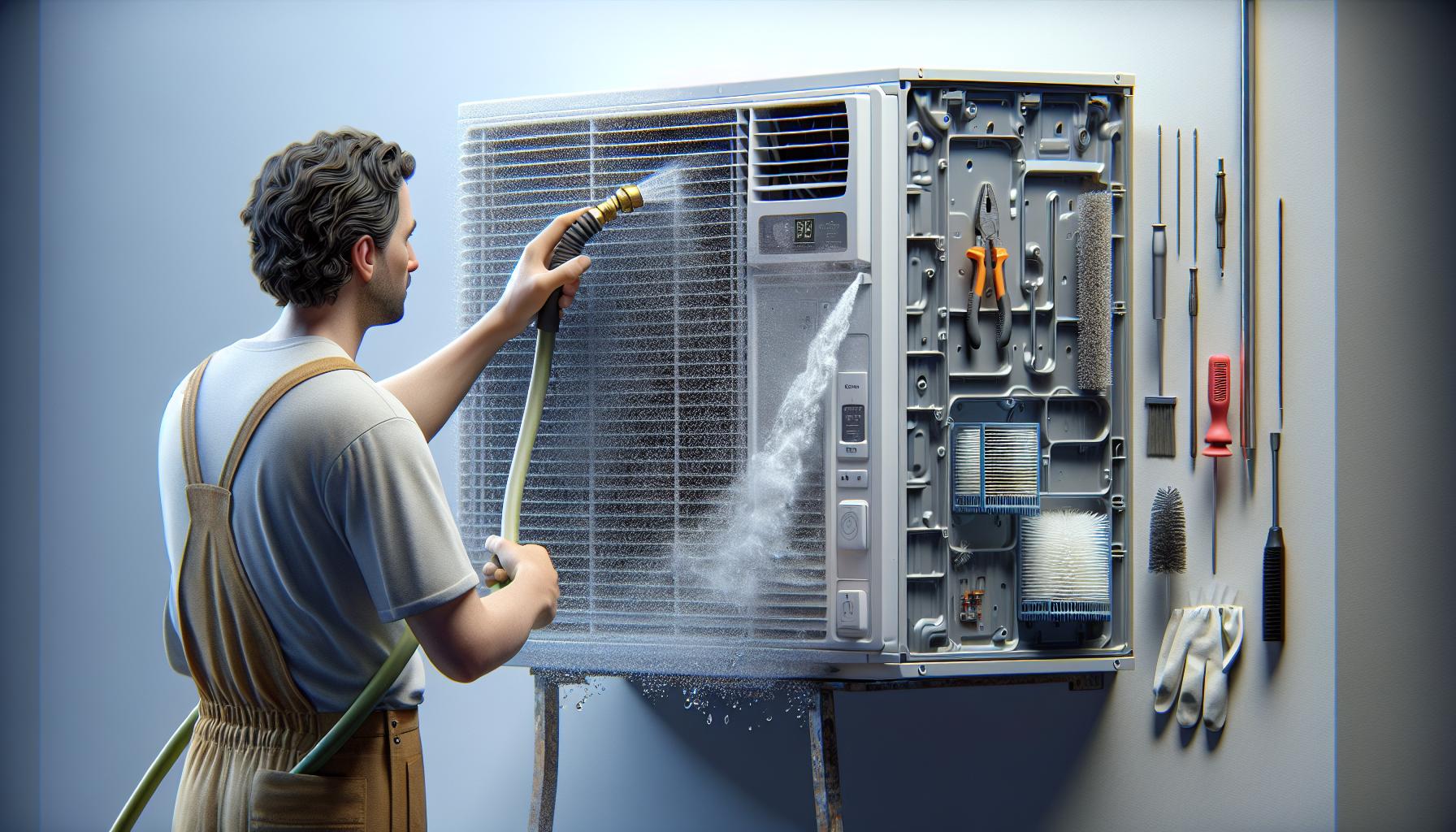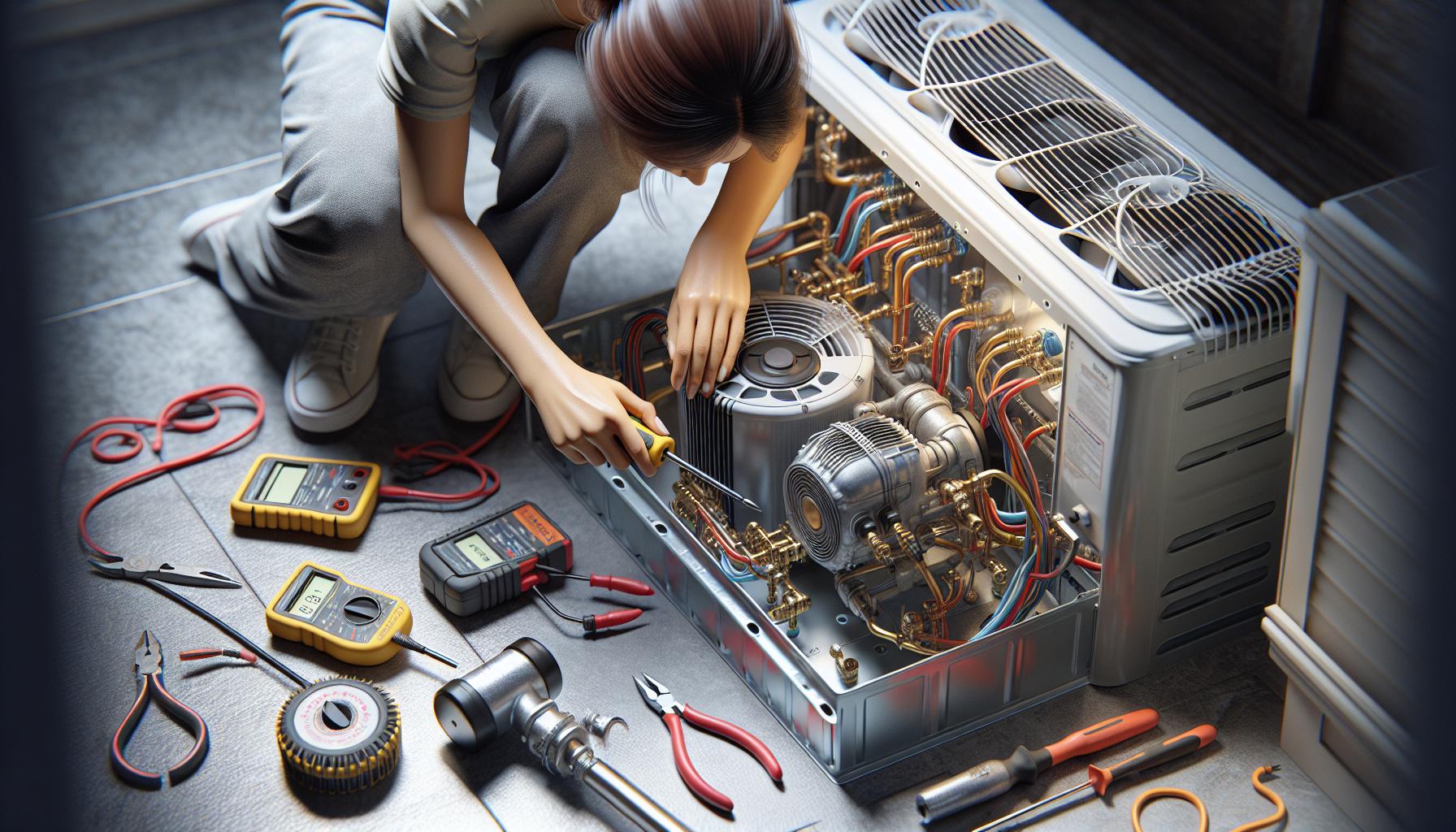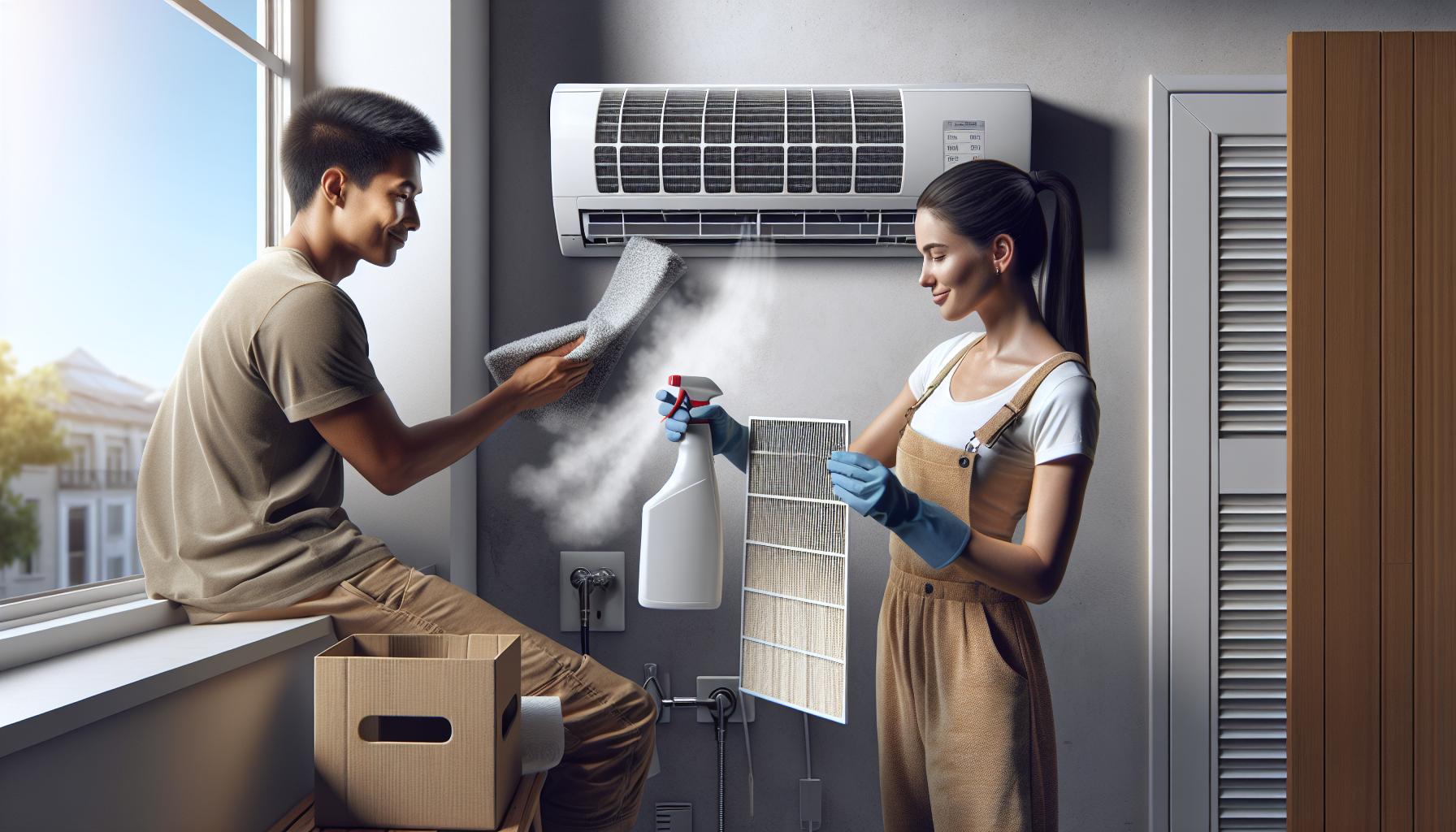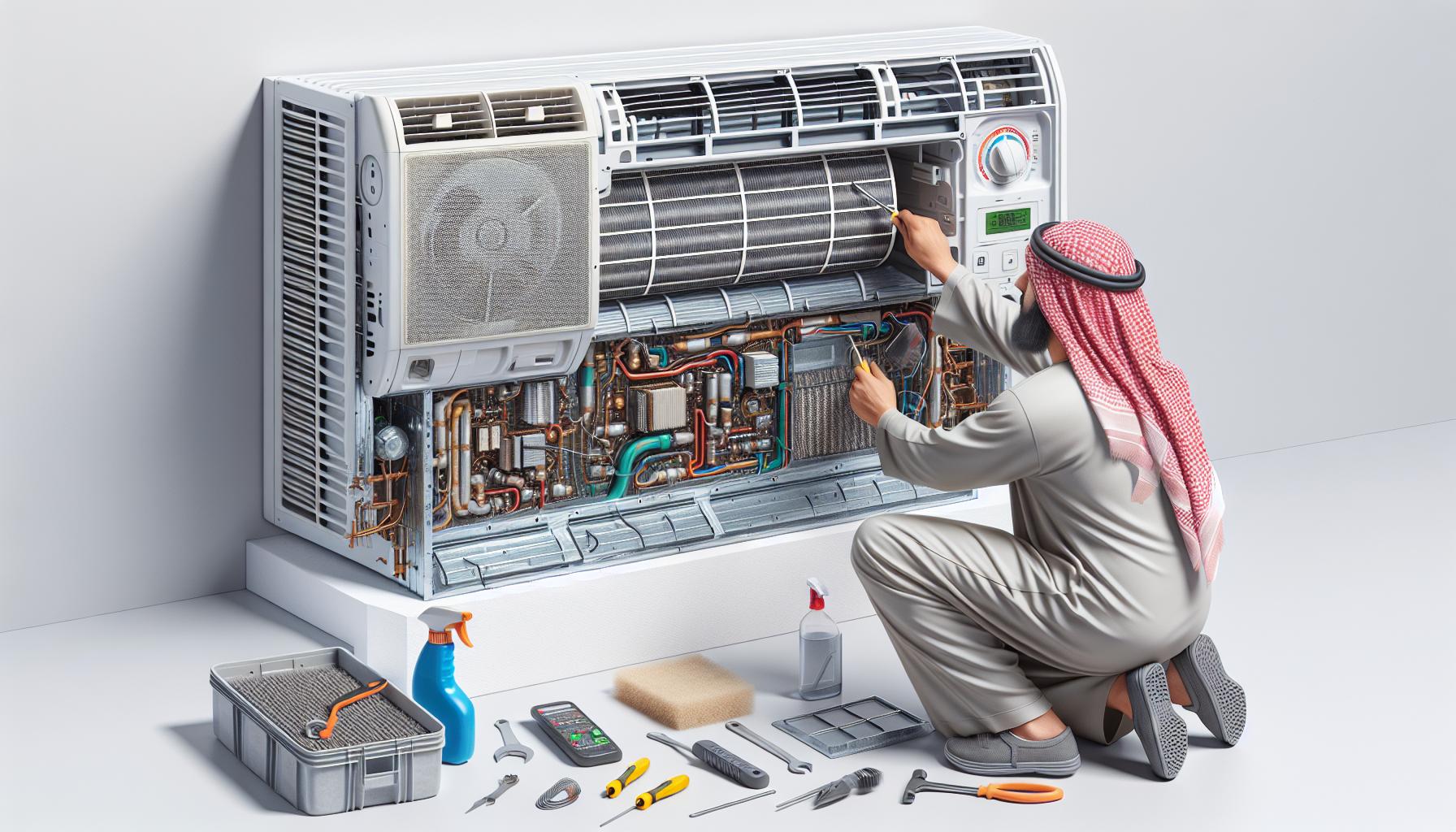Facing issues with your Richmond gas water heater can be a real dampener, especially when you’re looking forward to a warm shower. But don’t worry, you’re not alone in this. In this article, we’ll guide you through some common troubleshooting steps to get your water heater back in action. From pilot lights that won’t stay lit to water that’s just not hot enough, we’ve got the fixes you need. Keep reading to learn how to diagnose and resolve the most frequent hiccups with your Richmond gas water heater.
Common Issues with Richmond Gas Water Heaters
Richmond gas water heaters are a reliable choice for many households. However, like all appliances, they may encounter certain issues over time. Recognising the most common problems will assist you in timely troubleshooting and maintain the heater’s efficiency.
Pilot Light Issues
If you find yourself repeatedly lighting the pilot, it could signal a problem with the thermocouple. This safety device shuts off the gas if the pilot light goes out. A faulty thermocouple or a dirty pilot orifice may need to be replaced or cleaned for the pilot to function correctly.
Water Temperature Inconsistencies
When your hot water isn’t as hot as expected, there could be several culprits:
- Thermostat settings – Make sure they’re set at your desired temperature.
- Sediment build-up – This reduces heating efficiency and requires tank flushing.
Strange Noises
Popping or rumbling sounds from your water heater often point to sediment accumulation. Regular maintenance, including draining the tank, can prevent this issue.
Water Leakage
Water around the base of the heater should never be ignored. Leaking can be due to several factors:
- Loose connections
- Faulty temperature and pressure relief valve
- Corrosion in the tank itself
Inspect connections and valves, and check the tank for signs of corrosion. Remember, corrosion is irreversible and may require a new water heater.
Each of these issues can be resolved with the right approach, keeping the performance of your Richmond gas water heater optimal. Quick action can save both energy and cost, ensuring you have hot water when you need it.
1. Pilot Light Won’t Stay Lit
When tackling issues with your Richmond gas water heater, a pilot light that won’t stay lit is a common grievance. The pilot light is a small flame that ignites the gas burner on your water heater. If it’s out, your water heater can’t heat water, which signifies a core malfunction that needs immediate attention.
First, check the thermocouple. It’s a safety device that detects whether your pilot light is on. If the thermocouple is faulty or dirty, it might fail to sense the pilot light, causing the gas supply to shut off. Clean the thermocouple with a piece of fine sandpaper to remove any buildup. If cleaning doesn’t work, you may need to replace it.
Gas supply issues can also cause your pilot light to go out. Ensure your gas valve is on and that there are no bends or blockages in the supply line. If the gas supply is consistent and the problem persists, inspect the pilot tube. It could be clogged, which restricts the flow of gas. Cleaning the tube with a needle can often resolve this issue.
Lastly, check for drafts around your water heater. Unwanted airflow can blow out the pilot light. You might need to reposition the water heater or shield the pilot area to prevent drafts.
Monitoring and regular maintenance are key to preventing a pilot light from frequently going out. Keep an eye on the flame’s color; a steady blue flame is the ideal. A yellow or orange flame suggests contamination and requires cleaning. If you’ve addressed the common causes and your pilot light still fails to stay lit, it may be time to contact a professional technician.
Insufficient Hot Water
If you’re experiencing a lack of hot water from your Richmond gas water heater, several issues could be at play. It’s crucial to address these problems promptly to restore your system’s functionality.
Check the Water Heater’s Settings
Firstly, verify your water heater’s thermostat settings. It’s possible the temperature is set too low, resulting in cooler water output. The Department of Energy suggests a setting of 60°C for optimal performance without risking scalds.
Evaluate the Demand on Your Water Heater
You should also consider if your hot water usage has increased. More occupants or additional appliances can exceed the unit’s capacity. If this is the case, you might need to upgrade to a model with a higher gallon capacity or stagger your usage throughout the day.
Inspect for Malfunctioning Parts
- Faulty heating elements
- Malfunctioning dip tube
- Sediment buildup in the tank
Heating elements can fail, especially in electric water heaters, making it difficult for the water to maintain a high temperature. The dip tube, which ensures incoming cold water is heated uniformly, can also wear out or break. Lastly, sediment build-up from hard water can insulate the water from the heater’s burner or elements, leading to insufficient heating.
Routine Maintenance is Key
Regularly flushing your tank can prevent sediment from affecting water temperature. Additionally, replacing worn components like heating elements or the dip tube can significantly improve performance.
If these steps don’t resolve the issue, it’s wise to call a professional technician to diagnose and fix any complex underlying problems within your water heater system. Remember, regular checks can preempt these issues, ensuring you always have ample hot water when you need it.
3. Gas Leakage
When you’re dealing with a Richmond gas water heater, gas leakage is a serious concern that requires immediate attention. If you suspect a gas leak due to a distinct sulphuric or rotten egg odour, do not ignore it. Gas leaks present a significant risk of fire or explosion and can also lead to carbon monoxide poisoning if unaddressed.
Firstly, ensure safety by turning off the gas supply at the nearest gas valve. Ventilate the area to disperse the gas and avoid operating any electrical switches or appliances, as they can ignite gas vapours. Only once you’ve taken these precautions, inspect your water heater.
The leak could originate from several places:
- Gas supply line connections
- Pilot light area
- Gas control valve
Use a soapy water solution to detect the source; apply it to the suspected areas and watch for bubbles indicating a leak. Sometimes, the issue may be due to worn-out seals or loose connections that require tightening or replacement.
In case the leak source isn’t apparent or if it’s within the gas control valve itself, it’s time to call in a qualified technician. Professionals have the skills and tools to safely repair gas leaks. Remember that DIY repairs on gas appliances can be dangerous due to the volatile nature of natural gas.
Throughout the process, keep in mind that regular maintenance of your water heater, including checking for leaks, can prevent potential hazards and prolong the lifespan of your unit. Regular inspections are a key part of maintaining the safety and efficiency of your Richmond gas water heater, ensuring your supply of hot water is uninterrupted and safe.
4. Noisy Operation
When your Richmond gas water heater begins to make unusual noises, it’s often a sign that something isn’t functioning correctly. Understanding the type of noise you’re hearing can help you pinpoint the problem.
Popping or Banging: This is commonly caused by sediment accumulation in the tank. When water becomes trapped beneath the sediment, it boils and creates these sounds. Regular flushing of the tank is a recommended fix for this issue.
- Ensure to flush your water heater at least once a year
- Consider installing a water softener if you have hard water
Whining or High-Pitched Screeching: These noises may indicate a problem with the water flow. The culprit can often be sediment or scale build-up in the water valves.
- Check the pressure-relief valve and the inlet control valves
- Clean or replace valves as necessary to restore normal water flow
Humming: If you hear a humming sound, it’s likely due to the vibration of the heating element inside your water heater. This isn’t usually a sign of a malfunction but more a characteristic of the heater’s design.
- Tighten the element slightly to reduce the humming
- Ensure the heater is mounted securely to minimize vibrations
Lastly, rumbling or low-pitched gurgling can result from the boiling of water inside the heater, possibly because of overheating due to a faulty thermostat or a malfunctioning heating element.
- Verify the correct settings of your thermostat
- Inspect the heating elements for any signs of damage or wear
For persistent issues or noises you can’t identify, it’s best to seek the expertise of a professional technician. They can provide a thorough inspection and resolve any deeper mechanical problems that your initial troubleshooting may not cover. Remember, regular maintenance not only prevents noise but also extends the life of your water heater.
5. Burner Not Igniting
When you’re facing the issue of a Richmond gas water heater’s burner not igniting, there are several checks you need to perform to diagnose the problem. A non-igniting burner can prevent your water heater from providing you with hot water and may signal a need for immediate attention.
Firstly, Check the Gas Supply to ensure it’s on and that your water heater is receiving gas. Sometimes the issue may be as simple as the gas valve being accidentally turned off.
Next, inspect the Pilot Light. If it’s out, you’ll need to relight it following the manufacturer’s instructions. If it’s difficult to keep the pilot light lit, this could point towards a faulty thermocouple which will need replacing.
If the Thermocouple is bent or dirty, it may fail to detect the pilot flame and cause the gas valve to remain closed. A properly aligned and clean thermocouple is crucial for the ignition process.
Airflow Restriction can also prevent the burner from igniting. Check all vents and flues for blockages which could impede the flow of air necessary for combustion.
Sediments can clog the Burner Orifices, leading to improper burning or failure to ignite. Cleaning the orifices may resolve this issue.
Finally, consider the Control Valve. A defective control valve could fail to open and supply gas to the burner. Replacement by a certified professional is recommended if troubleshooting points to this component.
For any troubleshooting steps involving gas, it’s essential to take precautionary measures for safety. If you’re unsure about handling the issue or if the problem persists after your attempts at solving it, it’s always best to seek the help of a qualified technician. Regular care and attention can significantly reduce the risk of your burner not igniting, ensuring a consistent supply of hot water when you need it.
Conclusion
Tackling issues with your Richmond gas water heater can seem daunting but with the right approach you’re well-equipped to handle common problems. Remember safety is paramount so if you’re ever in doubt it’s wise to call in a professional. By staying vigilant and performing routine checks you’ll maintain your unit’s performance and extend its lifespan. Don’t let a cold shower catch you off guard—keep these troubleshooting tips at your fingertips and you’ll never be left in the cold.
Related Posts:
- Fixing Suburban Water Heaters: Why Your Pilot Won’t Stay Lit
- Fixing a Mr. Heater: Solutions When Your Unit Won't Stay Lit
- Fixing Richmond Heater: Pilot Light Won't Stay Lit
- Fixing Richmond Water Heater Gas Valve Issues: A…
- Fixing a Valor Fireplace: Why It Won't Stay Lit
- Dometic Water Heater Fixes: Solve Pilot Light &…
